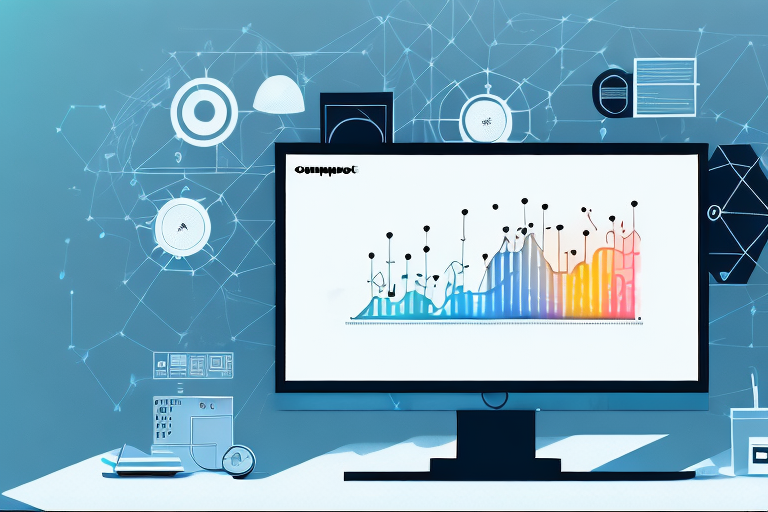.svg)
Advanced AI in Predictive Modelling for Campaign Success
.svg)

The ability to predict the success of a campaign can be the difference between a triumphant launch and a costly misstep. Advanced AI in predictive modelling has emerged as a powerful ally for marketers, offering insights that were once thought impossible. By applying sophisticated algorithms and vast datasets, AI can forecast outcomes with remarkable accuracy, enabling businesses to tailor their strategies for maximum impact.
Understanding Predictive Modelling
The Basics of Predictive Modelling
Predictive modelling is a statistical technique that uses historical data to predict future outcomes. It involves the use of data mining and machine learning to identify patterns and trends that can inform decision-making. At its core, predictive modelling aims to provide a probabilistic assessment of future events, allowing businesses to make informed choices based on likely scenarios.
In the context of marketing, predictive modelling can analyse past campaign data to forecast the potential success of future initiatives. By understanding which elements contributed to past successes or failures, marketers can optimise their strategies to enhance performance. This data-driven approach not only improves efficiency but also reduces the risk associated with marketing investments.
The Role of AI in Enhancing Predictive Modelling
Artificial Intelligence has revolutionised predictive modelling by introducing advanced capabilities that surpass traditional statistical methods. AI algorithms can process vast amounts of data at unprecedented speeds, uncovering insights that would be impossible for humans to detect manually. Machine learning models, in particular, can learn from data iteratively, improving their accuracy over time.
AI's ability to handle unstructured data, such as social media posts and customer reviews, further enhances its predictive power. By analysing these data sources, AI can provide a more comprehensive view of consumer behaviour and preferences. This holistic approach allows marketers to anticipate trends and tailor their campaigns to meet evolving customer needs.
How AI Predictive Modelling Drives Campaign Success
Targeted Audience Segmentation
One of the most significant advantages of AI in predictive modelling is its ability to refine audience segmentation. By analysing demographic, behavioural, and psychographic data, AI can identify distinct customer segments with precision. This enables marketers to craft personalised messages that resonate with each group, increasing engagement and conversion rates.
Advanced AI models can also predict the likelihood of a customer responding to a particular campaign, allowing businesses to allocate resources more effectively. By focusing efforts on high-potential segments, marketers can maximise their return on investment and achieve better outcomes.
Optimising Campaign Timing and Channels
Timing is crucial in marketing, and AI predictive modelling can help determine the optimal time to launch a campaign. By analysing historical data and current market trends, AI can identify patterns that indicate the best times to engage with target audiences. This ensures that campaigns are launched when they are most likely to capture attention and drive action.
Additionally, AI can recommend the most effective channels for reaching specific audiences. By evaluating past performance across various platforms, AI models can suggest where to focus marketing efforts for maximum impact. This channel optimisation ensures that messages reach the right people at the right time, enhancing overall campaign effectiveness.
Enhancing Content Strategy
Content is a critical component of any marketing campaign, and AI can play a pivotal role in shaping content strategy. Predictive models can analyse consumer preferences and engagement patterns to identify the types of content that resonate most with target audiences. This insight allows marketers to create compelling, relevant content that drives engagement and fosters brand loyalty.
Furthermore, AI can assist in content personalisation by tailoring messages to individual preferences and behaviours. This level of personalisation enhances the customer experience, increasing the likelihood of conversion and long-term brand advocacy.
Implementing AI Predictive Modelling in Marketing Campaigns
Choosing the Right Tools and Technologies
Implementing AI predictive modelling requires selecting the appropriate tools and technologies that align with business objectives. There are numerous AI platforms available, each offering unique features and capabilities. Marketers should evaluate these options based on factors such as ease of use, scalability, and integration with existing systems.
It's also essential to consider the quality and diversity of data available for analysis. High-quality data is crucial for building accurate predictive models, so businesses should invest in robust data collection and management practices. This ensures that AI models have access to the information needed to generate reliable insights.
Building a Skilled Team
Successful implementation of AI predictive modelling requires a team with the right skills and expertise. Data scientists, machine learning engineers, and marketing strategists must collaborate to develop and refine predictive models. This interdisciplinary approach ensures that models are both technically sound and aligned with marketing goals.
Ongoing training and development are also crucial, as the field of AI is constantly evolving. By staying abreast of the latest advancements, teams can continue to optimise their models and maintain a competitive edge.
Integrating AI Insights into Decision-Making
For AI predictive modelling to drive campaign success, insights must be integrated into the decision-making process. This requires a cultural shift within organisations, where data-driven insights are valued and prioritised. Marketers should be encouraged to rely on AI-generated predictions to inform their strategies and tactics.
Regular evaluation of model performance is also essential to ensure that predictions remain accurate and relevant. By continuously refining models based on new data and feedback, businesses can maintain the effectiveness of their predictive modelling efforts.
Challenges and Considerations
Data Privacy and Ethical Concerns
As with any data-driven approach, AI predictive modelling raises concerns about data privacy and ethics. Businesses must ensure that they comply with relevant regulations, such as the General Data Protection Regulation (GDPR), to protect consumer information. Transparency in data collection and usage is also vital to maintain trust with customers.
Ethical considerations extend beyond privacy, as AI models can inadvertently perpetuate biases present in the data. It's crucial to implement measures that identify and mitigate these biases to ensure fair and equitable outcomes.
Balancing Human Insight with AI
While AI offers powerful predictive capabilities, human insight remains invaluable in the marketing process. Marketers must strike a balance between relying on AI-generated insights and applying their intuition and creativity. This synergy between human and machine can lead to more innovative and effective campaigns.
Encouraging collaboration between AI systems and marketing teams can foster a culture of experimentation and learning. By leveraging the strengths of both AI and human insight, businesses can achieve superior results.
The Future of AI in Predictive Modelling
Emerging Trends and Technologies
The future of AI in predictive modelling is promising, with ongoing advancements in machine learning and data analytics. Emerging technologies, such as deep learning and natural language processing, are set to enhance predictive capabilities further. These innovations will enable even more accurate and nuanced predictions, opening new possibilities for campaign success.
As AI continues to evolve, its integration with other technologies, such as the Internet of Things (IoT) and blockchain, will create new opportunities for data collection and analysis. This interconnected ecosystem will provide richer insights, enabling marketers to craft more targeted and effective campaigns.
Preparing for a Data-Driven Future
To capitalise on the potential of AI in predictive modelling, businesses must embrace a data-driven mindset. This involves investing in data infrastructure, fostering a culture of continuous learning, and prioritising innovation. By doing so, organisations can position themselves at the forefront of the digital marketing landscape.
Ultimately, the successful integration of AI in predictive modelling will empower businesses to deliver more personalised, impactful campaigns that resonate with audiences and drive success. As AI technology continues to advance, the possibilities for predictive modelling in marketing are limitless, offering exciting prospects for the future.
Related Posts
Let's
Let’s discuss how we can bring reinvigorated value and purpose to your brand.







.svg)